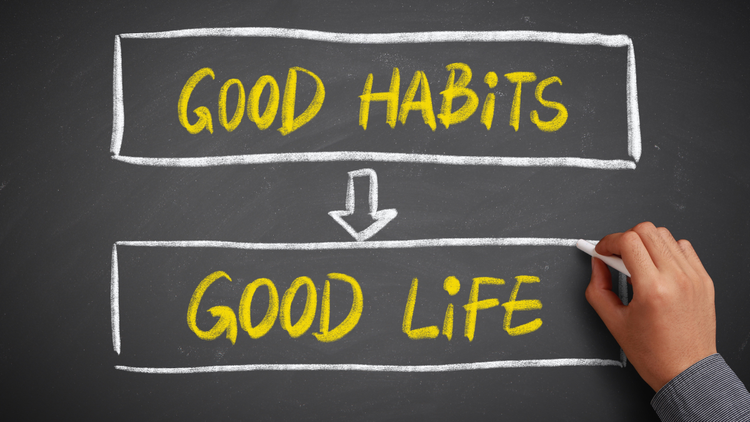The Anatomy of Procrastination (and What to Do About It)

You’re sitting at your desk, staring at the thing you need to do.
It’s not even that hard. It might only take twenty minutes.
But for some reason, you just… can’t.
So, you check your emails again. Maybe scroll. Make a coffee. Watch a video. Clean the bench. Suddenly, hours have passed, and you’re still avoiding it.
And then the shame sets in.
“Why do I always do this?”
“What’s wrong with me?”
“I know better, but I still don’t do it.”
Sound familiar?
Me too.
It’s not about time. It’s about emotion.
Here’s what I wish more people knew: procrastination isn’t laziness. It’s not a time management issue. It’s not even a motivation problem.
At its core, procrastination is emotional. It’s a way of avoiding discomfort. Not because we don’t care, but because we care too much. Our brains are trying to protect us.
When you avoid a task, you’re not just putting off work. You’re putting off the feelings that come with it. Things like uncertainty, fear of failure, self-doubt, boredom, or perfectionism. Sometimes, even success can feel scary.
In psychology, we call this emotional avoidance. And it’s incredibly common, especially among smart, capable, well-intentioned people who want to do things well.
Why we procrastinate
There are a few common patterns when it comes to procrastination. You might recognise yourself in one, or in all of them.
Some people delay because they’re perfectionists. If they can’t do it perfectly, they don’t want to do it at all. Others chase the rush of last-minute pressure, convincing themselves they "work better under stress." Some feel overwhelmed by how big the task is and don’t know where to start. Others quietly fear they’re not good enough to do it at all.
And sometimes, it’s not that deep. You’re just tired. Or bored. Or drained from making a hundred other decisions already that day.
But whatever the surface reason, the underlying mechanism is the same. Your brain sees discomfort ahead and chooses temporary relief instead. And in the short term, avoidance works. You do feel better when you avoid the hard thing.
At least, until you don’t.
My avoidance pattern
A while back, I had a piece of writing due for a leadership development project. It was important — one of those “signature deliverables” — and I wanted it to be excellent. I’d been thinking about it for weeks. I’d made notes. I’d even outlined the whole thing.
But I didn’t start.
Instead, I filled my time with everything around the task. I refined a slide deck. Replied to old emails. Organised my files. I convinced myself I was being productive, but deep down, I was avoiding.
Why? Because I didn’t want to face the feeling of not getting it right.
The moment I finally opened the document and wrote a single sentence, the anxiety lifted. Not entirely, but enough to keep going. I didn’t need to finish it that day.
I just needed to begin.
Procrastination protects you (at a cost)
The brain’s job is to keep you safe. And in many ways, procrastination is your brain doing its job. If it sees a task that might trigger fear, discomfort, embarrassment, or judgment, it puts up a roadblock.
But this kind of safety has a cost. Over time, avoidance builds pressure. It erodes confidence. And it reinforces the belief that you can’t be trusted to do hard things.
The longer you avoid something, the heavier it gets. Eventually, even thinking about it becomes stressful.
So, how do we move forward?
The solution isn’t to bully yourself into action. That only deepens the shame spiral. What you need is a circuit-breaker. A way to gently shift gears and remind your brain that this is safe and that you can do it.
Start small. Smaller than you think.
Don’t write the whole report. Just open the doc and write a sentence. Don’t declutter the whole kitchen. Just put away one item. Don’t try to fix your whole morning routine. Just get out of bed and drink water.
The trick is to create momentum. Action builds clarity. One tiny step is enough to shift you out of paralysis and back into motion.
Sometimes I use a timer. Just ten minutes. That’s all I commit to. Ten minutes of focused effort. More often than not, it turns into twenty or thirty. But even if it doesn’t, I still made progress.
And when I catch myself procrastinating, I try to ask a better question than “Why can’t I do this?” Instead, I ask: “What am I avoiding feeling right now?”
That question can unlock everything.
A quick word on kindness
If you’re deep in a pattern of avoidance right now, I want to offer this: you are not broken.
You are not lazy, weak, or undisciplined.
You are tired. You are overwhelmed. You are trying to do your best in a world that constantly demands more from you.
Procrastination is a clue, not a character flaw. And often, it’s pointing toward something you need. Rest. Reassurance. Permission to start small. Or simply a break from the pressure of perfection.
Whatever it is, listen to it. Then take one small, imperfect step.
You’ve got this.
–MRB
My goal is to help people thrive in a complex world. While I write as a psychologist, this content is general in nature, does not constitute a therapeutic relationship, and is not a substitute for personalised mental healthcare advice. Further, some posts may include affiliate links to resources I recommend. Read my full site policy here.




Member discussion